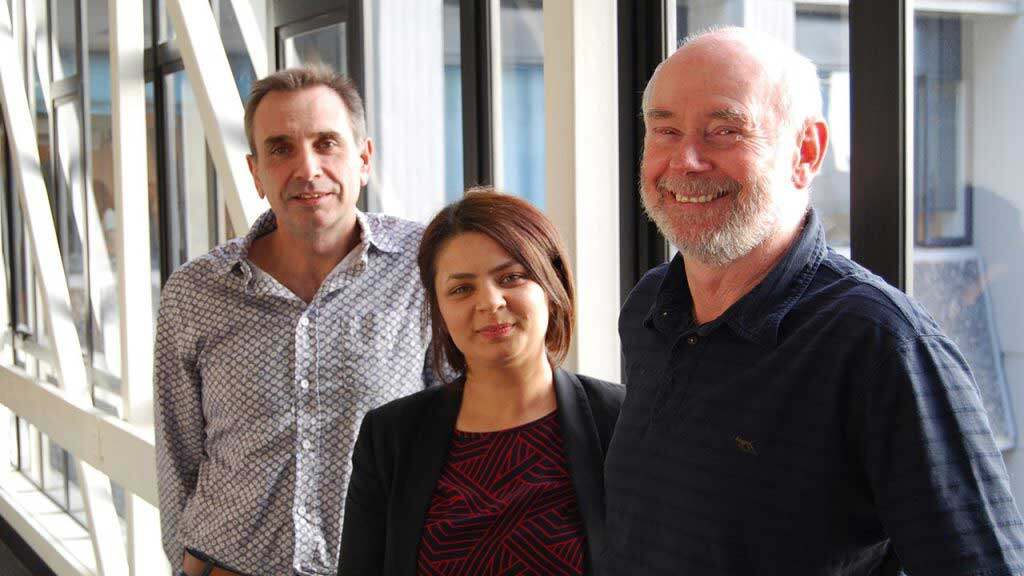A new Waipapa Taumata Rau, University of Auckland spin-out company, TheiaNova, is working to introduce a groundbreaking, non-invasive treatment for the eye disease keratoconus.


Keratoconus affects the cornea, the clear tissue that covers the front of the eye, causing the collagen in the cornea to break down, becoming thin, distorted and characteristically conical in shape. This leads to reduced and distorted vision, sensitivity to light and, in severe cases, tearing of the cornea.
Existing treatment for moderate cases involves surgery, with transplant required for severe cases. University of Auckland researchers led by Professor Colin Green, a serial entrepreneur and professor emeritus, have discovered a far less invasive treatment, using simple eye drops to strengthen the cornea.
TheiaNova was born as a result of work by PhD student Carol Greene, who was working with faculty members Green, Trevor Sherwin and Ilva Rupenthal to research corneal cells known as keratocytes. Greene discovered keratocytes could be reprogrammed to produce a type of collagen normally only expressed in the embryonic stage of development.
With further work, the researchers found this discovery could be applied to strengthen the corneas of patients with keratoconus and prevent further damage.
“With younger keratoconus patients often facing repeat surgical interventions through life, we aim to not only slow disease progression, but to rebuild the thinning cornea whilst improving vision,” said Green. “We’ve been contacted by many keratoconus patients and for them there remains an unmet need we really hope we can satisfy.”
“The team realised they had something with potential commercial value when they saw they could reprogramme keratocytes to produce collagen,” said TheiaNova CEO Carissa Fonseca. “At that point they started conversations with UniServices, the research application and commercialisation company of the University. UniServices supported the team with their initial due diligence and helped secure the IP.”
The next step was to secure investment to launch the first human study. Bridgewest Ventures NZ has stepped up to provide that backing. TheiaNova is also supported by UniServices and Callaghan Innovation.
After the completion of a small-scale human trial, TheiaNova will look for further investment to take its treatment through regulatory clearance.
“This is a ground-breaking approach to keratoconus, based upon sound, well established science, with well protected IP,” said Green. “The treatment has been shown to work in human tissues and has potential to translate readily and safely to the clinic. In the future, this treatment may
transfer to patients with myopia, correcting vision defects without surgery. If the treatment crosses into the myopia market as expected, the opportunity is very large.”



































